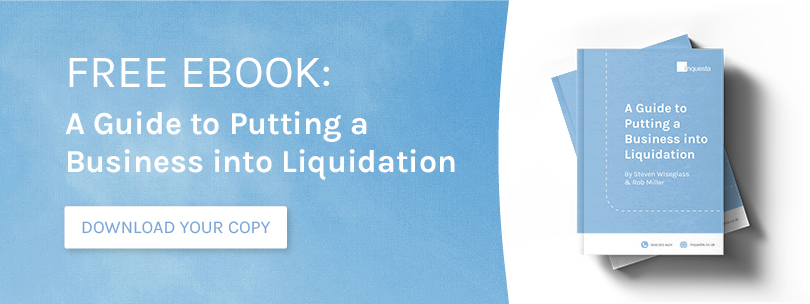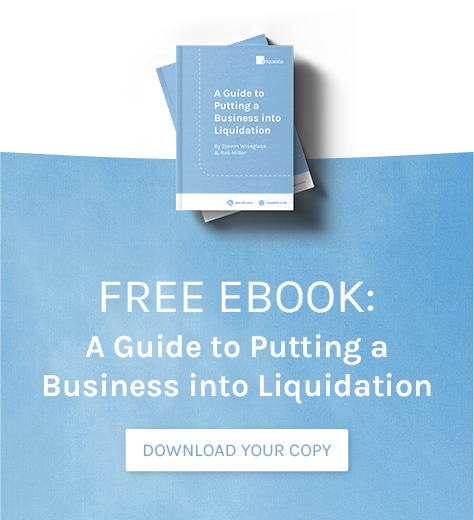Is insolvency all bad?
As a participant at a recent online event, I was asked to link my business ‘offering’ to the fast-approaching festive season.
Not an easy task when people usually consider the insolvency process to be the very antithesis of Christmas cheer.
Having resisted the temptation to compare myself with Scrooge, the question did get me thinking: Where circumstances make it inevitable, can a positive spin be put on the insolvency process?
I believe that you can and here’s why:
1) Directors Advice
Through no fault of their own, particularly in light of the current crisis, many directors may be faced with increasing levels of debt. One thing that I always try to convey to people is how an insolvency practitioner (IP) can help overwhelmed directors to sleep at night.
By seeking the opinion of an IP regarding the ongoing viability of the company, directors are confronting the issue head-on. Should they decide to proceed with a Voluntary Liquidation (CVL), it puts them, rather than creditors, firmly in the driving seat. The CVL process generally means unsecured debts are written off, and directors are free to turn over a new page in their life and ‘start’ again.
2) Benefits of Liquidation
It is important to remember that the liquidation process should not affect a person’s personal credit score and, provided there is no evidence of improper conduct or any personal guarantees, it should not result in any lasting repercussions. People often wrongly assume that liquidation automatically prohibits directors from acting in the same capacity in a new venture. This is not the case. The Insolvency Service only pursues disqualification proceedings where it is believed that directors acted improperly.
The cost of putting a company into liquidation is usually modest, if not paid for in its entirety by the sale of the remaining assets. Moreover, taking pro-active steps to place the company into CVL will also mean the end of the relentless emails, letters and phone calls which will have caused torment for so many months.
Once appointed, all matters relating to the company become the responsibility of the liquidator, allowing the director to move on.
3) Outstanding Debt for Creditors
For creditors, the process may cause financial loss but, most importantly, it means that the outstanding debt crystallises. This will make it possible to claim back any VAT on the outstanding debt, or any other tax relief that exists. When the director takes liquidation action directly, it can save creditors thousands of pounds in court and legal fees.
The liquidator has a duty to act in the best benefit of creditors. Creditors can therefore bring to the liquidator’s attention anything they feel may be of concern and ensure the liquidator performs his/her duties diligently. Should the director have signed a personal guarantee against the debt, it means that the creditor can now directly pursue the guarantor for the monies.
4) Redundancy Payments Office
Liquidation may unfortunately result in redundancies, but fortunately employees may be entitled to make a claim to the Redundancy Payments Office (RPO) for any outstanding redundancy pay, holiday pay, arrears of wages and notice pay. There is also the possibility that the director, if acting as a bona fide employee, could be able make a claim to the RPO.
5) Business Recovery
Finally, although insolvency practitioners are sometimes stereotyped as the undertakers of the corporate world, it is actually not uncommon for IPs to be able to help businesses get back on their feet if they are contacted early enough. There is a wide preconception that contacting a IP is a admission of defeat, however, at Inquesta we’ve seen many clients help turn their businesses fortunes around when they reached out to us in good time.
Summary
There is no doubt that the next few months will be challenging for many business owners. However, Directors need to realise that with the right guidance and assistance, the insolvency process may well be far less painful than first imagined.



